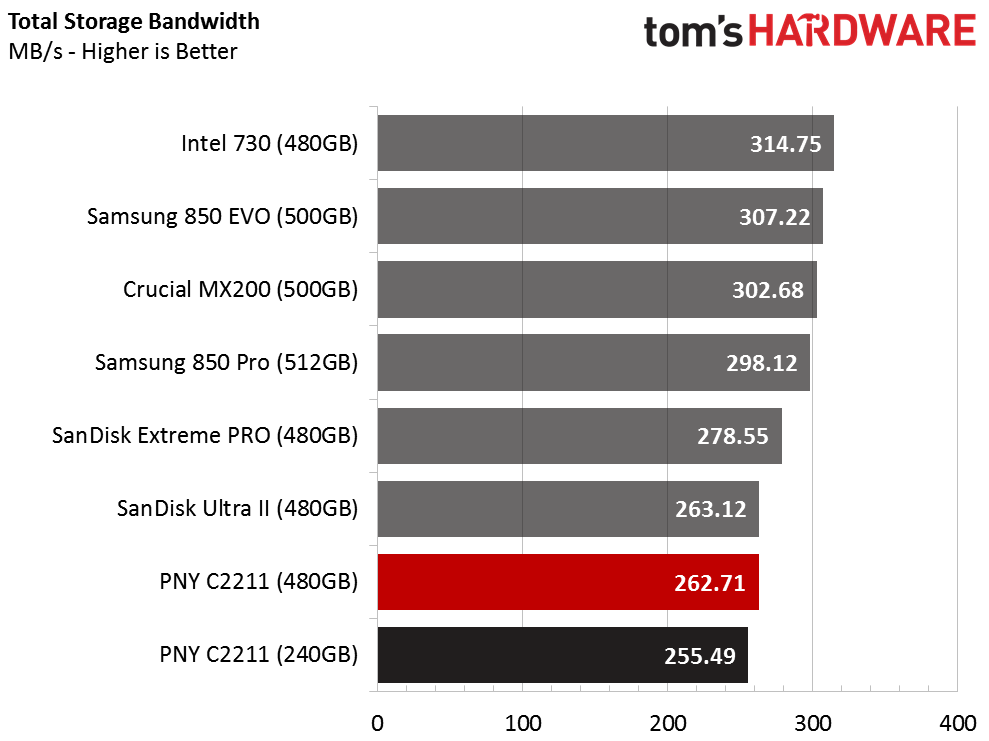PNY CS2211 XLR8 SSD Review
PNY released two new consumer SSDs that employ Phison's S10 controller. Today, we're looking at the CS2211 model, sporting Toshiba MLC flash. This enthusiast-oriented drive was designed for gaming and 4K video.
Why you can trust Tom's Hardware
Real-World Software Performance
PCMark 8 Real-World Software Performance
For details on our real-world software performance testing, please click here.
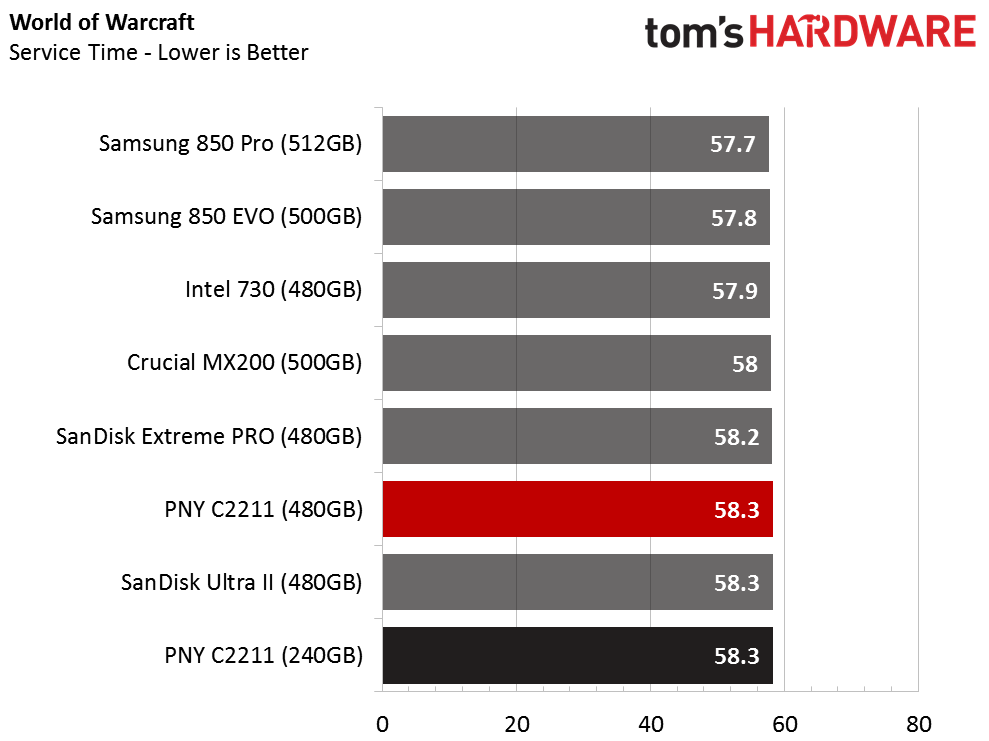
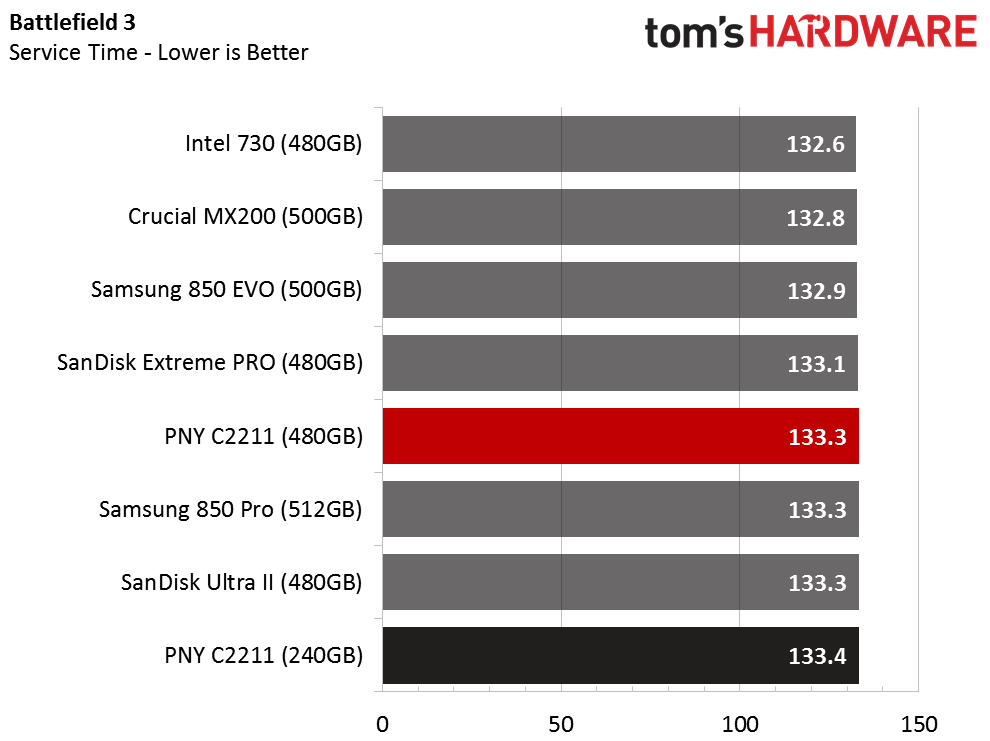
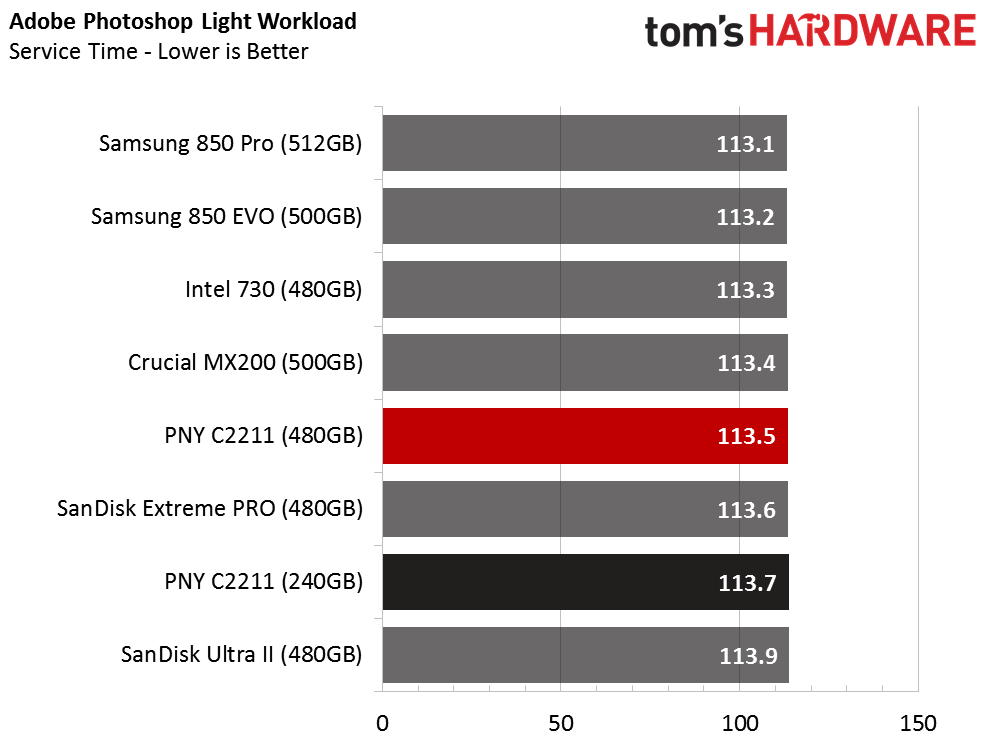
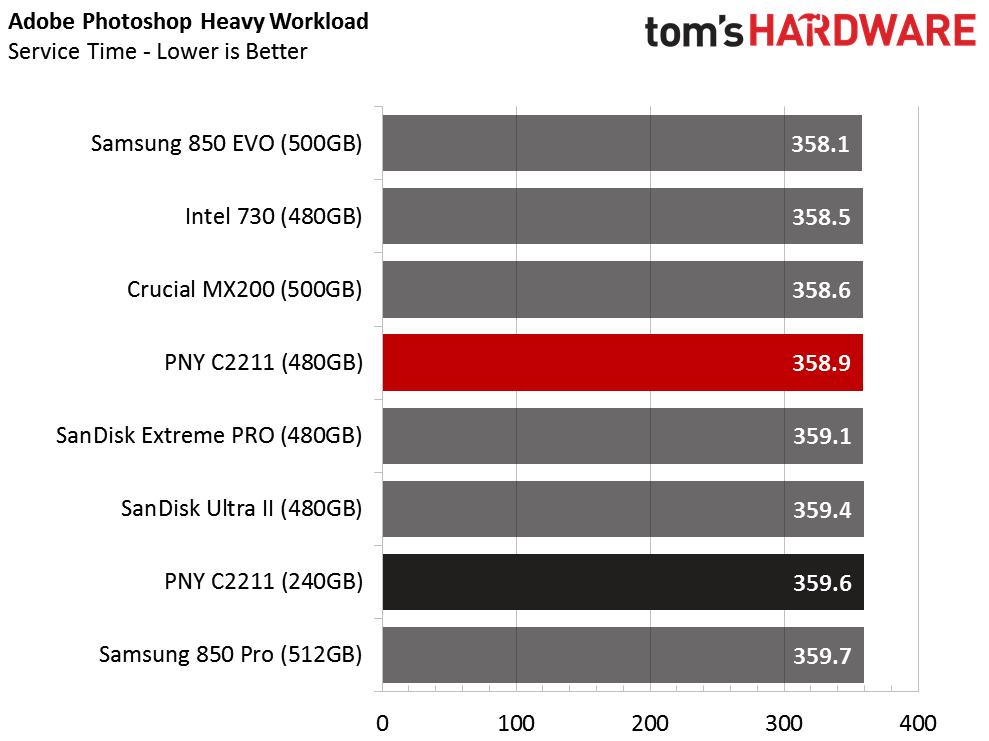
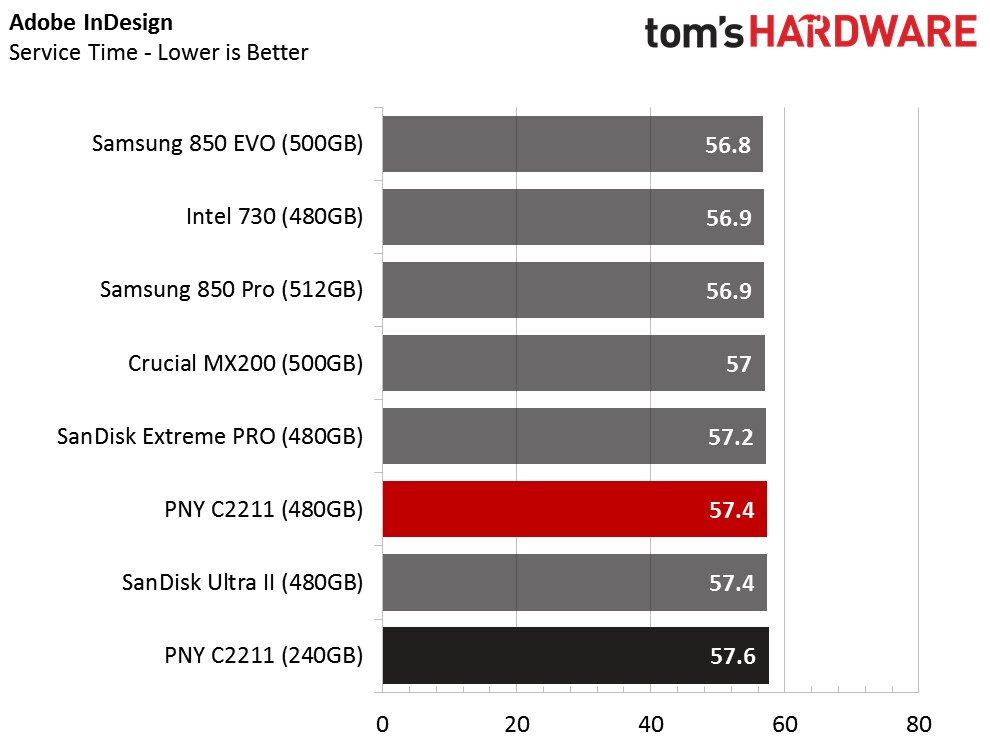
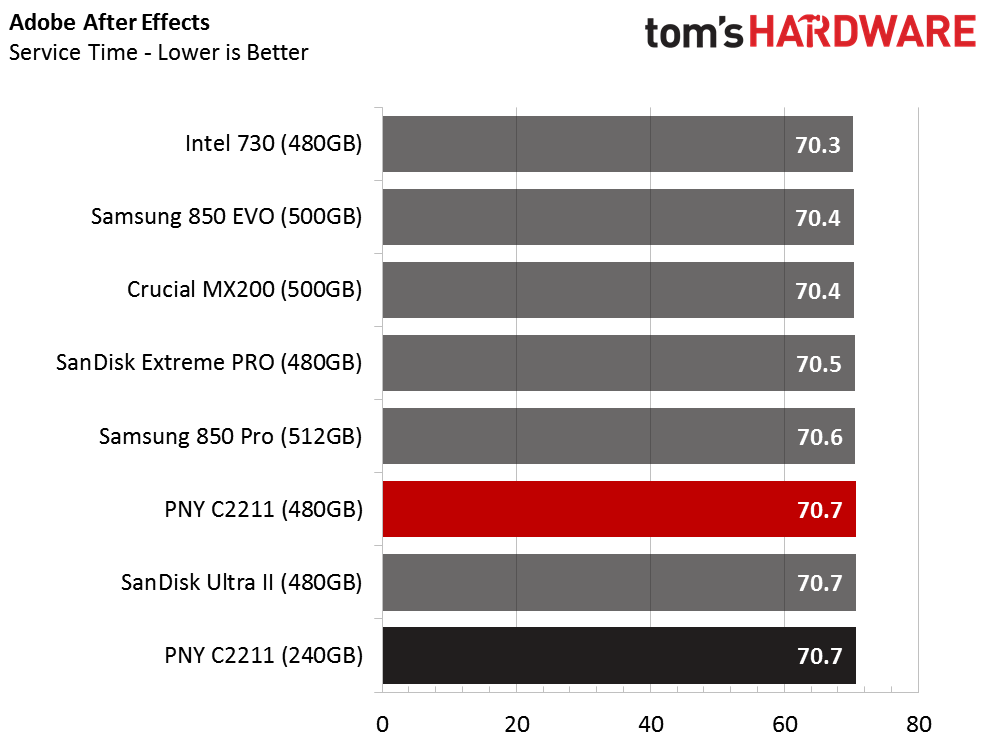
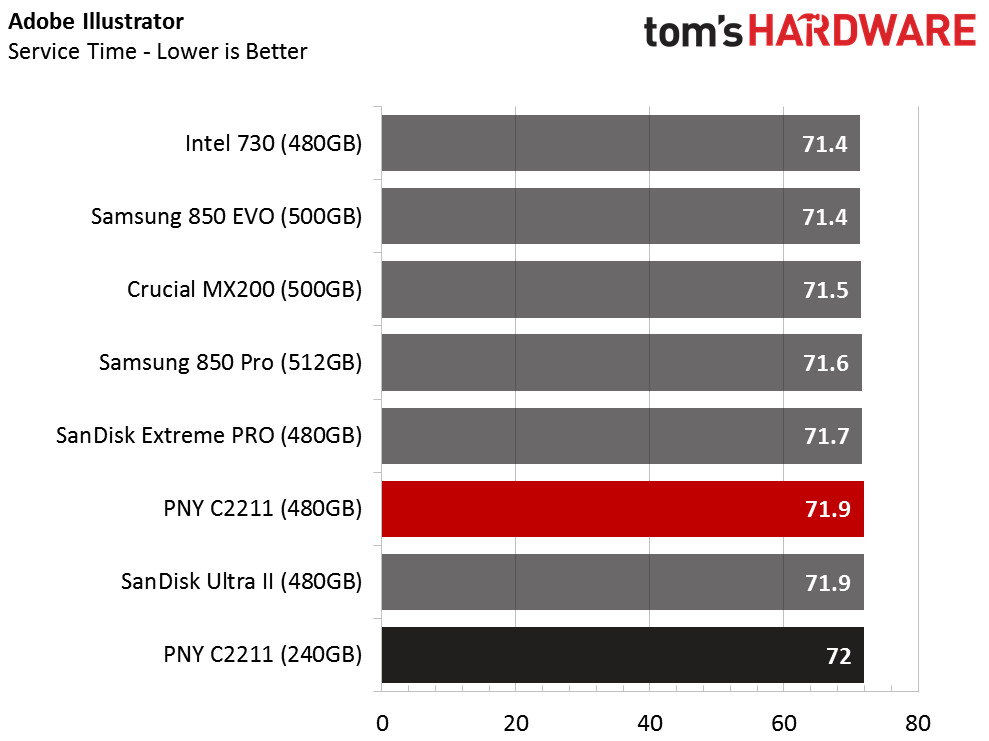
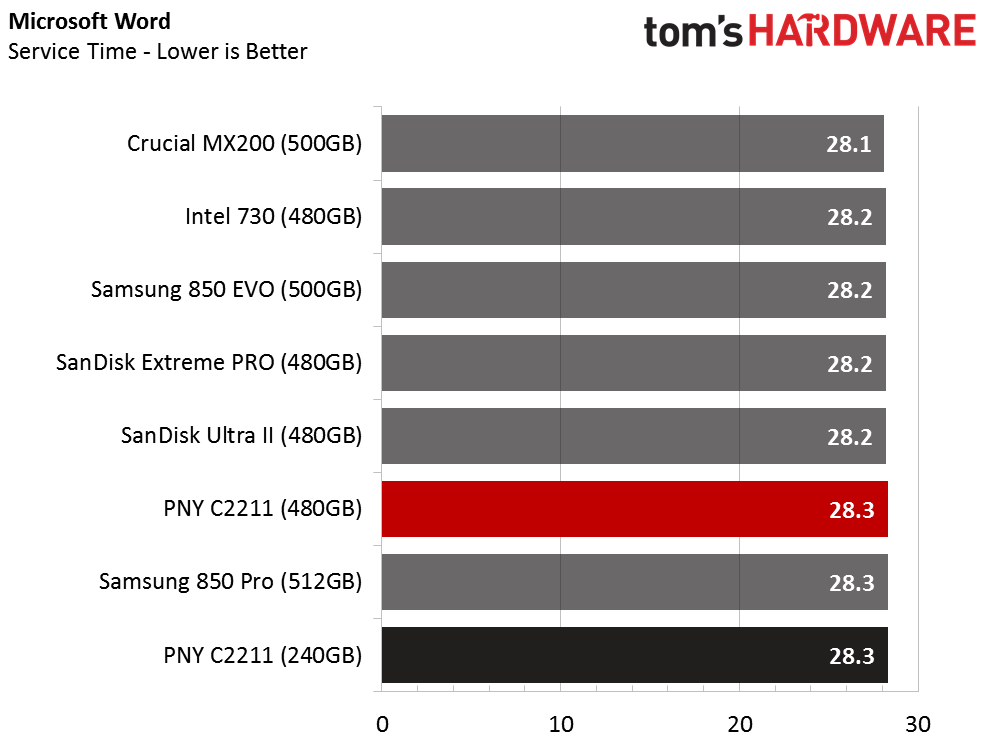
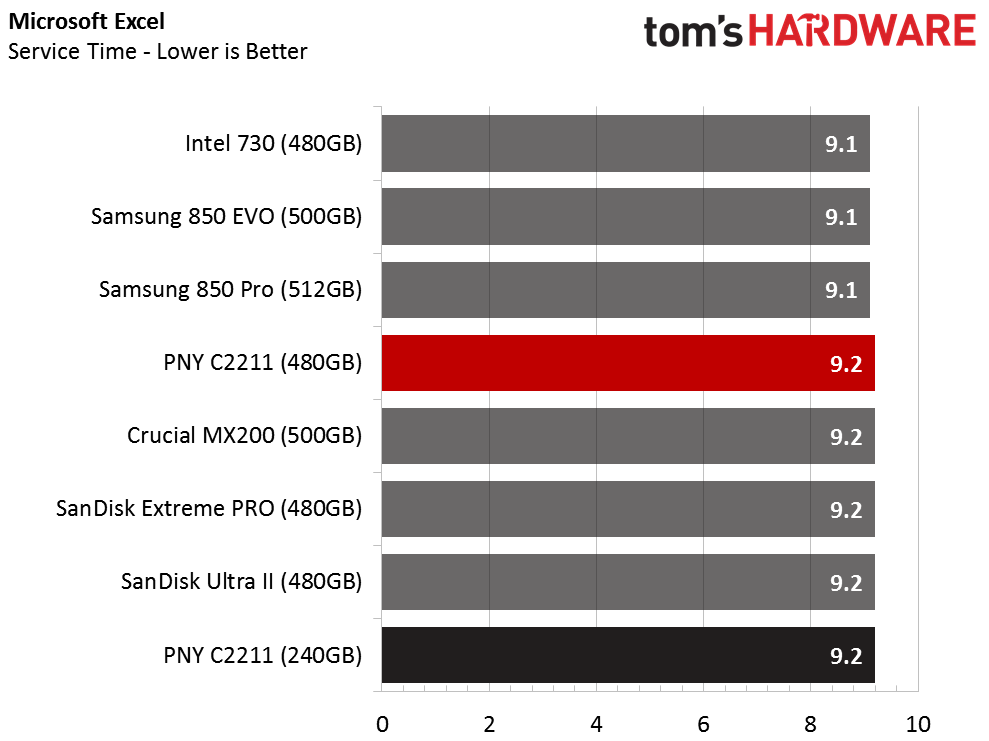
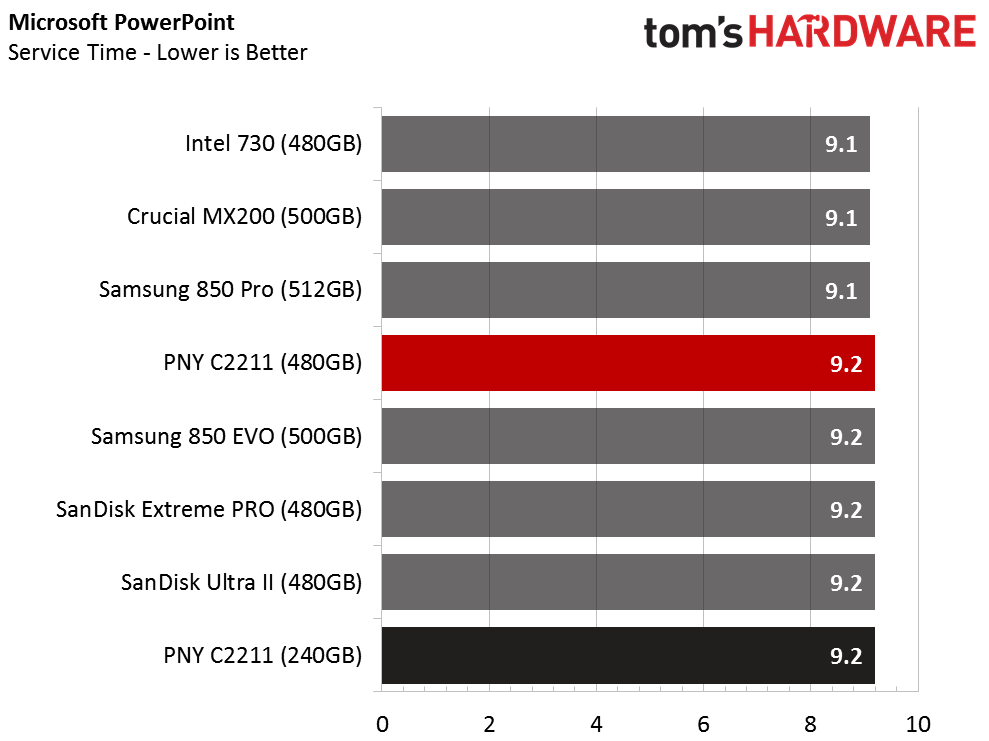
The application workloads pull together everything we learned from the synthetic tests. While it's true that we see sequential performance when we move big files to and from our PCs, it's far more common to have small blocks of data mixed in at the same time on a typical enthusiast desktop.
Not surprisingly, the CS2211's low performance in 4KB mixed workloads surfaces in our application tests. The differences aren't large, but they're consistent enough for us to see a pattern where the 480GB CS2211 gets outperformed by its competition.
With the results averaged and converted into throughput, the picture clarifies. PNY's 480GB CS2211 falls to the bottom of our application workload chart. We can link these results directly to the random 4KB mixed workloads.
PCMark 8 Advanced Workload Performance
To learn how we test advanced workload performance, please click here.
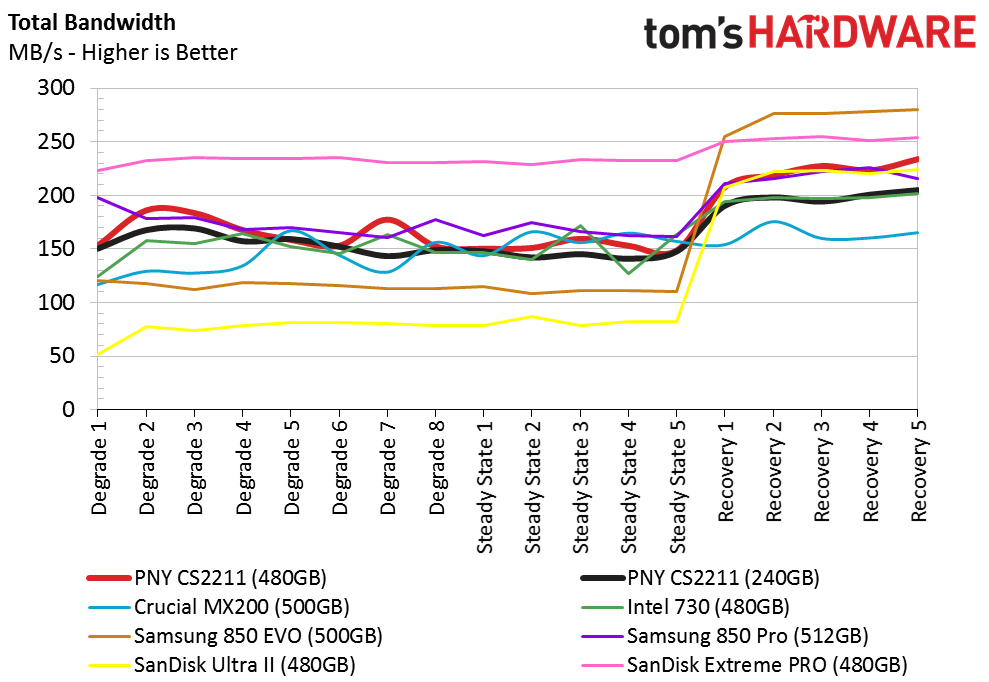
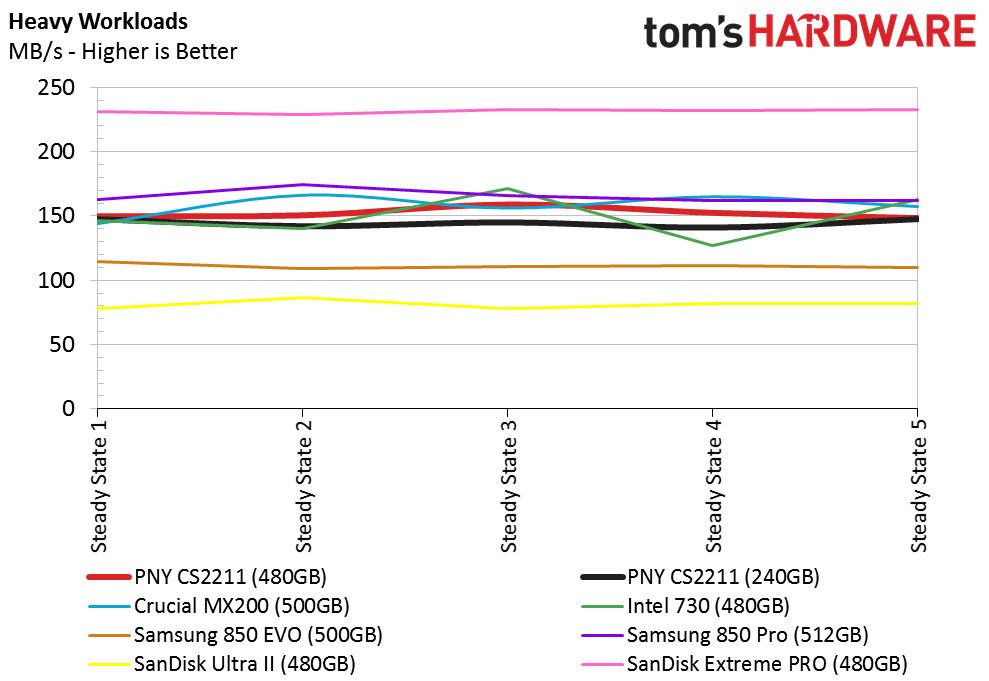
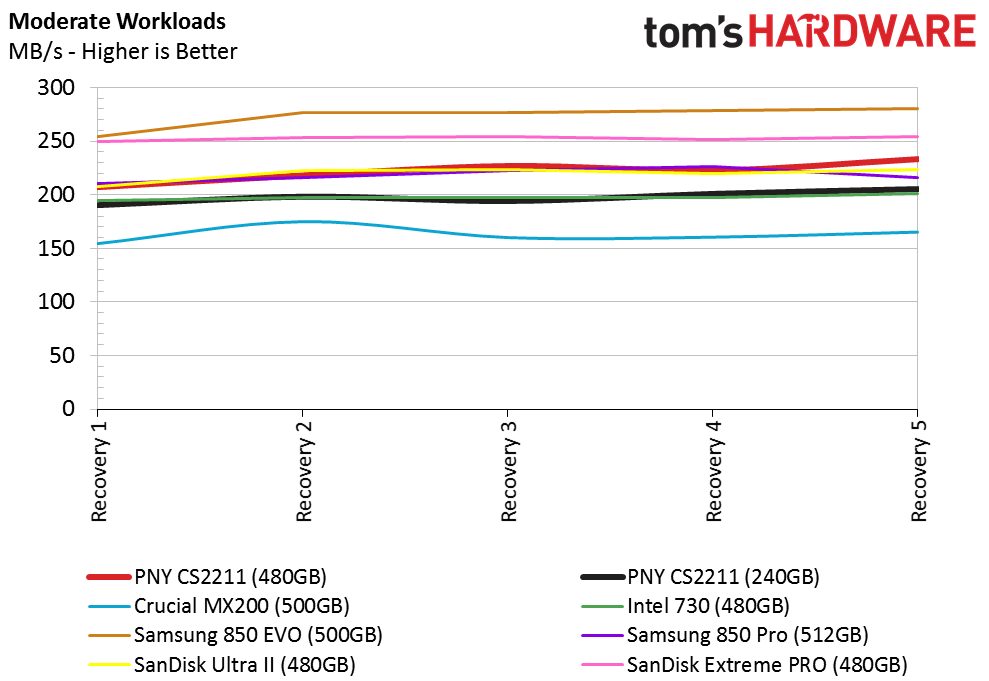
Most desktop enthusiasts only need to focus on the recovery states of PCMark 8's Advanced Workload tests. If you're a workstation professional writing a lot of data, pay attention to the state state tests too.
The CS2211 lands in the middle of our comparison products. It's not a standout like the 850 EVO or Extreme Pro, but it's strong enough to be a viable alternative.
Get Tom's Hardware's best news and in-depth reviews, straight to your inbox.
Total Access Time
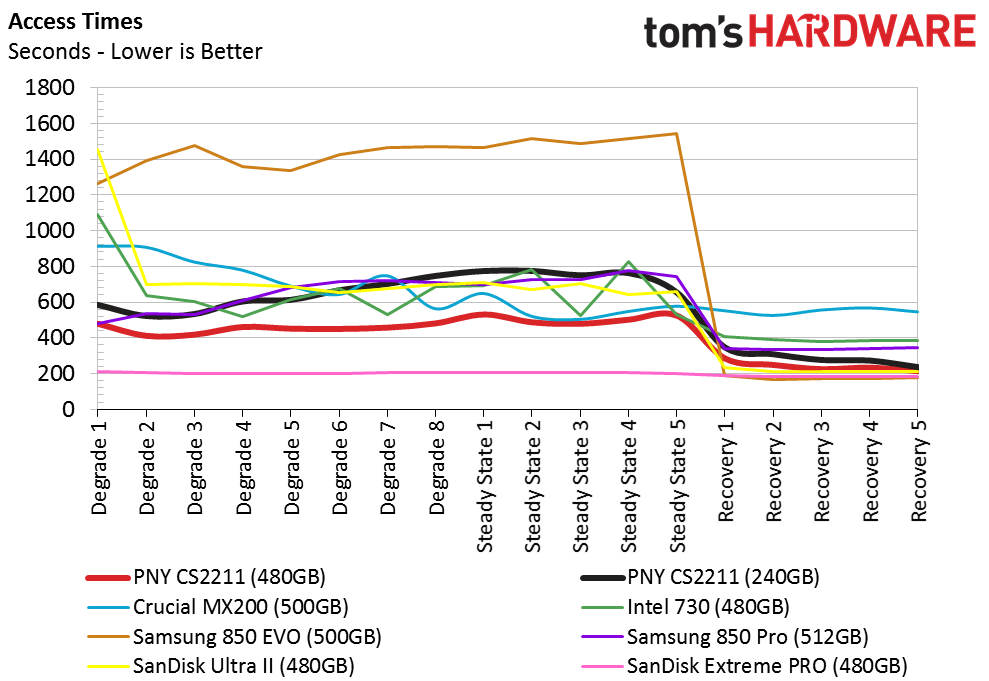
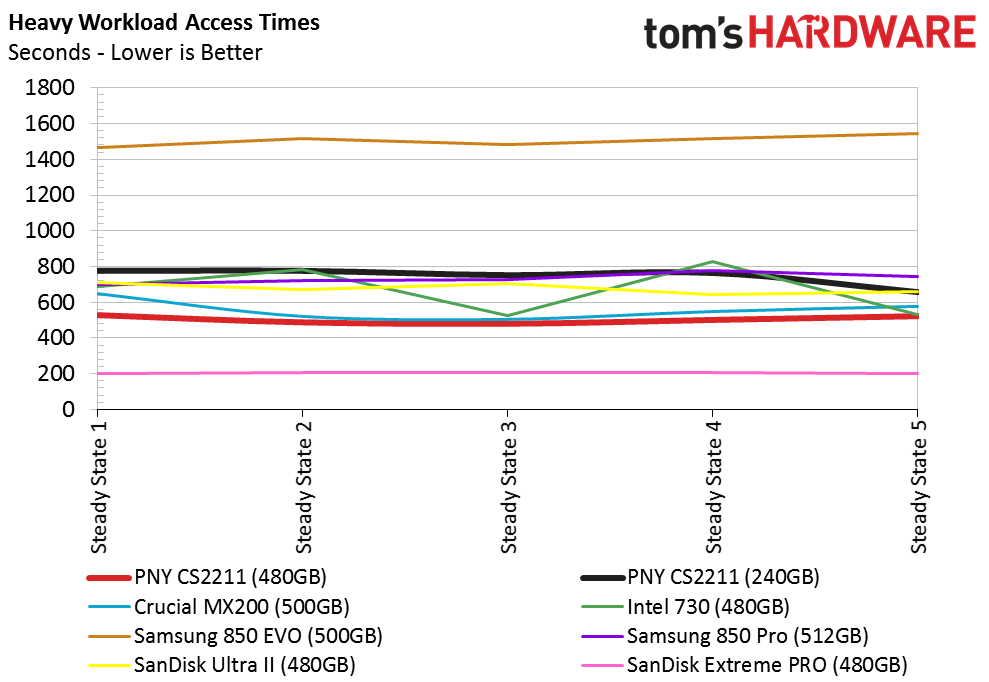
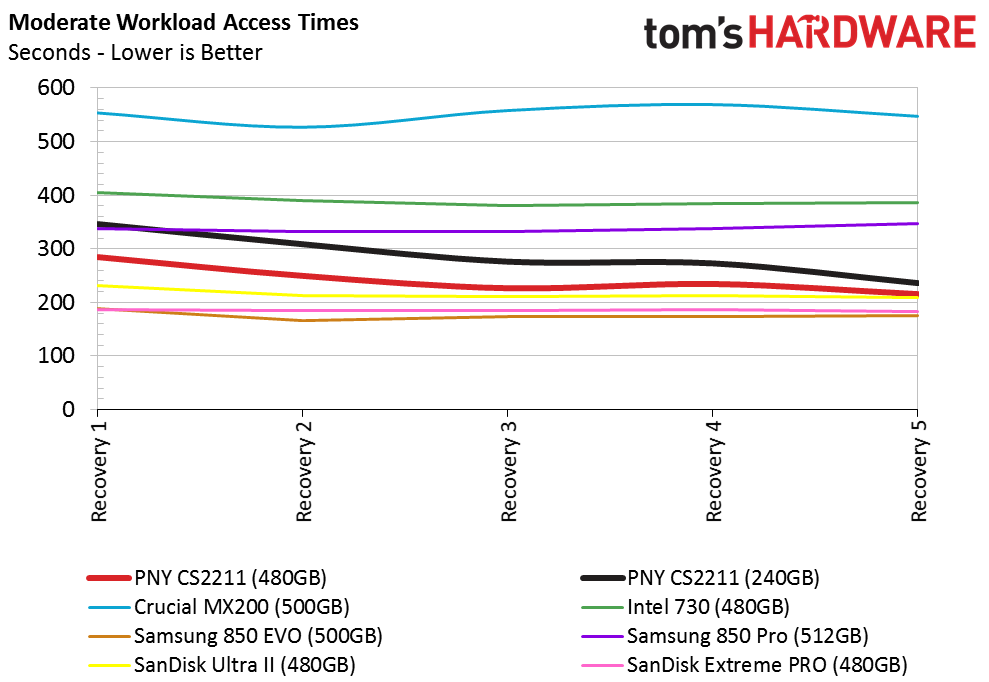
The access time tests show the CS2211s in a better light. This is one of the most important metrics because it helps illustrate the experience you'll have with lots of information on the drive. Anyone with an almost-full SSD is limiting the amount of space available for the controller to keep fresh. Some devices handle this condition better than others. And it appears the CS2211 only trails the 850 EVO and Extreme Pro by a small margin.
Notebook Battery Life
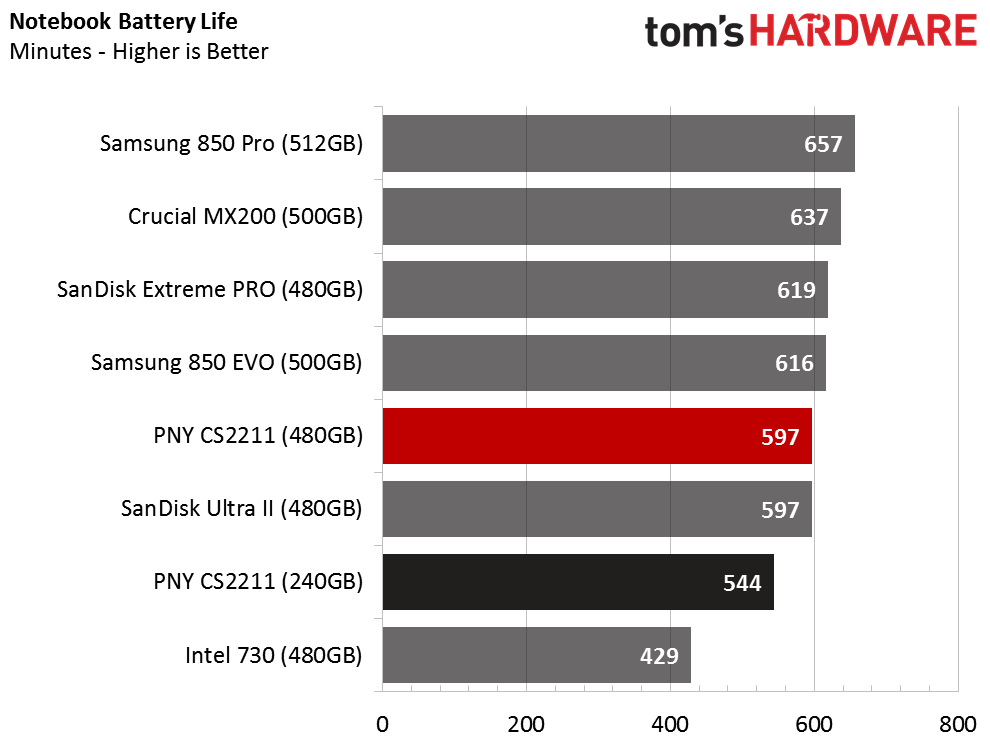
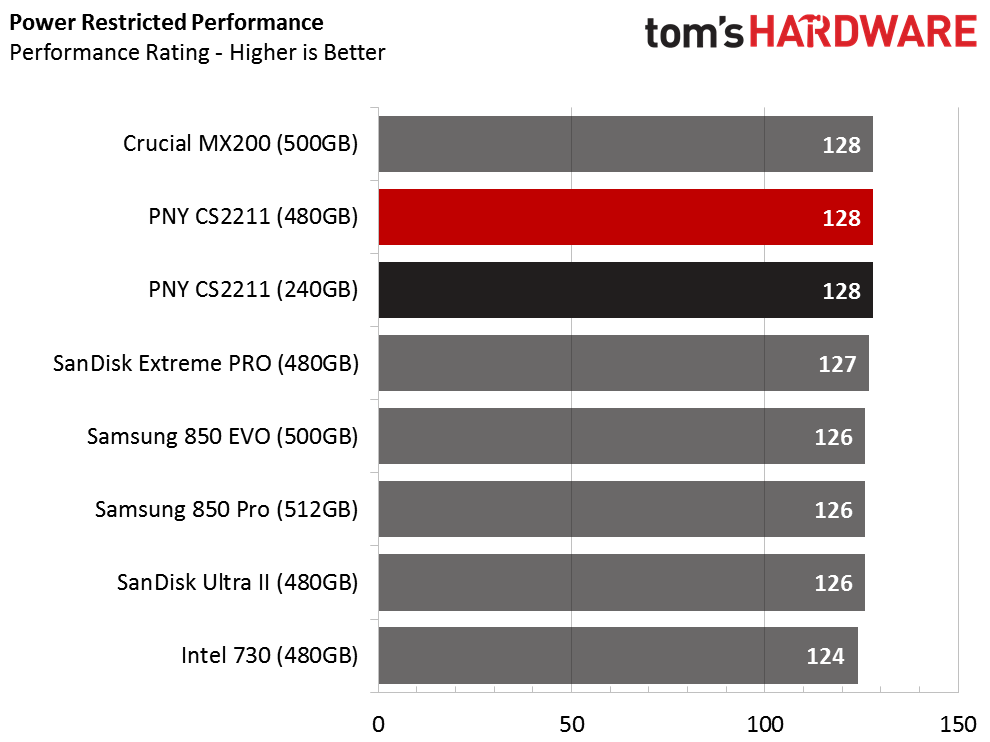
Several factors affect notebook battery life. We often see SSD power measurements as they read and write data. But more power is consumed during background activities like garbage collection and wear-leveling. By testing power consumption in a notebook, we garner a result that means something in the real world.
The 480GB CS2211 is not power-hungry like Intel's SSD 730, but it also isn't as refined as Samsung's 850 Pro.
Current page: Real-World Software Performance
Prev Page Mixed Workload And Steady State Next Page Conclusion
Chris Ramseyer was a senior contributing editor for Tom's Hardware. He tested and reviewed consumer storage.
